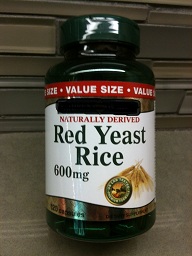A significant theme within the ACA is the emphasis on the prevention of diseases. From no charge preventive office visits to grants for wellness projects, reducing the long term expenditures on chronic illnesses in the United States is prominent in the bill.
Several people I know, who are adamant against taking pharmaceutical prescription medications, have asked me if there is any support for natural remedies and dietary supplements in the Healthcare Reform provisions. I have found minimal references to dietary supplements but they may prove important down the road.
Under one section for medication management (1), there are provisions that allow programs that include pharmacists, to assess, review, and track people with chronic illnesses taking 4 or more medications. These medications may include over-the-counter dietary supplements. While this doesn’t necessarily address the healthy person taking dietary supplements to maintain their health, we might see some good data supporting dietary supplements come out of the programs.
Another reference to dietary supplements can be found in a provision that establishes demonstration wellness projects for at-risk populations(2). These pilot programs would create individual wellness programs for people who use community health centers. In addition to nutritional counseling, physical activity recommendations, the individual plans may included, “(v) Dietary supplements that have health claims approved by the Secretary.”
Another issue is whether dietary or nutritional supplements can be deducted from individual taxes. For the most part they can not. The one caveat is if they have been recommended by a physician to treat or avoid a medical condition. For most people, even the expenditures on regular prescription drugs do not accumulate enough dollars to be itemized as a deduction. The alternative is establishing a Health Savings Account (HSA) from which you pay for approved medical expenses. The purchases, per say, are not deductible on your Federal taxes, but the contributions you make to the HSA are.
Nutritional Supplements IRS Publication 502
You cannot include in medical expenses the cost of nutritional supplements, vitamins, herbal supplements, “natural medicines,” etc. unless they are recommended by a medical practitioner as treatment for a specific medical condition diagnosed by a physician. Otherwise, these items are taken to maintain your ordinary good health, and are not for medical care.
For instance, I was recommended by my physician to take a combination of fish oil and red yeast rice extract to lower my cholesterol. We wanted to try the dietary supplements before moving onto pharmaceutical statins like Lipitor. With an HSA, I could have paid for supplements out of the account under the IRS guidelines.
Even though the ACA is not chalk full of support for diet supplements, there is hope that through good data and tracking, the traditional medical establishment may reach for the natural remedy more easily than just writing a prescription for pharmaceutical medications.
1. ‘‘SEC. 935 o42 U.S.C. 299b–35.. GRANTS OR CONTRACTS TO IMPLEMENT MEDICATION MANAGEMENT SERVICES IN TREATMENT OF CHRONIC DISEASES.
‘‘(a) IN GENERAL.—The Secretary, acting through the Patient
Safety Research Center established in section 933 (referred to in
this section as the ‘Center’), shall establish a program to provide
grants or contracts to eligible entities to implement medication
management (referred to in this section as ‘MTM’) services provided
by licensed pharmacists, as a collaborative, multidisciplinary,
inter-professional approach to the treatment of chronic diseases for
targeted individuals, to improve the quality of care and reduce
overall cost in the treatment of such diseases. The Secretary shall
commence the program under this section not later than May 1,
2010.
‘‘(d) TARGETED INDIVIDUALS.—MTM services provided by licensed
pharmacists under a grant or contract awarded under subsection
(a) shall be offered to targeted individuals who—
‘‘(1) take 4 or more prescribed medications (including overthe-
counter medications and dietary supplements)
2. SEC. 4206. DEMONSTRATION PROJECT CONCERNING INDIVIDUALIZED WELLNESS PLAN.
‘‘(1) IN GENERAL.—The Secretary shall establish a pilot
program to test the impact of providing at-risk populations
who utilize community health centers funded under this section
an individualized wellness plan that is designed to reduce
risk factors for preventable conditions as identified by a comprehensive
risk-factor assessment.
‘‘(2) AGREEMENTS.—The Secretary shall enter into agreements
with not more than 10 community health centers funded
under this section to conduct activities under the pilot program
under paragraph (1).
‘‘(3) WELLNESS PLANS.—
VerDate 0ct 09 2002 13:03 Jun 09, 2010 Jkt 000000 PO 00000 Frm 00502 Fmt 9001 Sfmt 6601 F:\P11\NHI\COMP\PPACACON.005 HOLCPC
June 9, 2010
503 PPACA (Consolidated) Sec. 4207
‘‘(A) IN GENERAL.—An individualized wellness plan
prepared under the pilot program under this subsection
may include one or more of the following as appropriate to
the individual’s identified risk factors:
‘‘(i) Nutritional counseling.
‘‘(ii) A physical activity plan.
‘‘(iii) Alcohol and smoking cessation counseling
and services.
‘‘(iv) Stress management.
‘‘(v) Dietary supplements that have health claims
approved by the Secretary.
‘‘(vi) Compliance assistance provided by a community
health center employee.
‘‘(B) RISK FACTORS.—Wellness plan risk factors shall
include—
‘‘(i) weight;
‘‘(ii) tobacco and alcohol use;
‘‘(iii) exercise rates;
‘‘(iv) nutritional status; and
‘‘(v) blood pressure.
‘‘(C) COMPARISONS.—Individualized wellness plans
shall make comparisons between the individual involved
and a control group of individuals with respect to the risk
factors described in subparagraph (B).
Download the full version of the Patient Protection And Affordable Care Act.[download id=”21″] Approximently 2.75 MB as found on the www.healthcare.gov website.


